Dutch Springs S-56 Helicopter
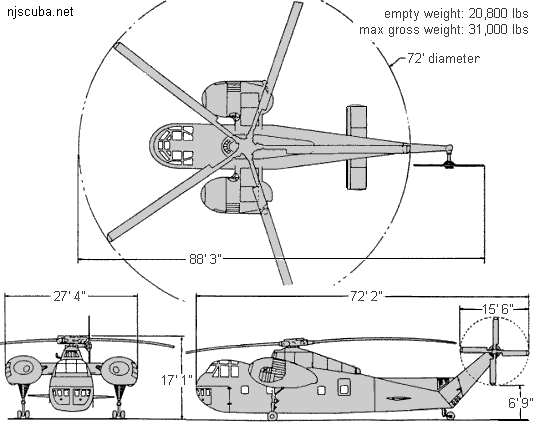
- Type:
- helicopter, heavy-lift transport
- Sunk:
- 1995
- Depth:
- suspended between 25 and 40 ft
- Sponsor:
- Keystone Helicopter

The Sikorsky S-56 was the first of the military multi-engine "heavy-lift" helicopters. The military designation was CH-37 "Mojave", although it was known to its crews as the "Big Deuce" for its twin engines. This was probably also a nod to its cargo-carrying capacity since the Army's standard heavy truck was also known as a "Deuce." The original 1953 Mojave could lift over 10,000 pounds or carry 26 combat troops on the power of its two 18-cylinder 1900 hp radial piston engines. Clamshell doors in the nose even allowed loading of small vehicles.

Production of the S-56 ended in 1960. 'Deuces' served in all branches of the military well into the 1970s, when they were replaced by more powerful turbine-powered craft. A few, like the one at Dutch Springs, were sold to civilian operators; most were scrapped. Keystone Helicopter donated this well-worn example to Dutch Springs in 1995.


On Dutch Springs' aircraft, all the doors and cockpit glazing, as well as the engines and main rotor blades are gone, but the tail rotor is in place and can be moved around. Large frames on either side of the fuselage below the rotor are the remains of stub wings that carried the engines and landing gear. The main rotor hub is about five feet in diameter.
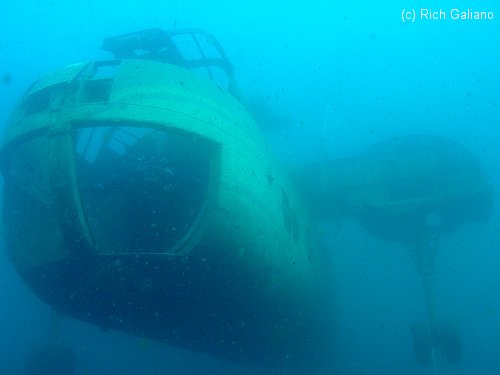
The depth of the bottom below the helicopter fluctuates with the water level of the quarry, between 50 and 60 ft. The helicopter itself is suspended from the surface at a depth of 25 ft.
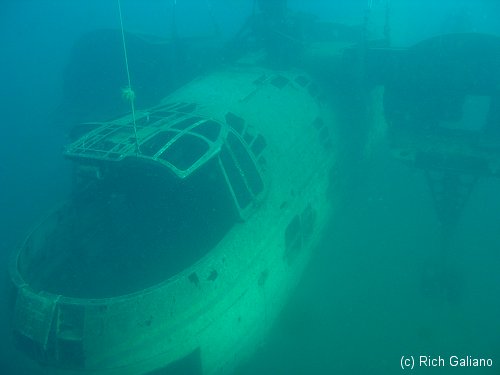
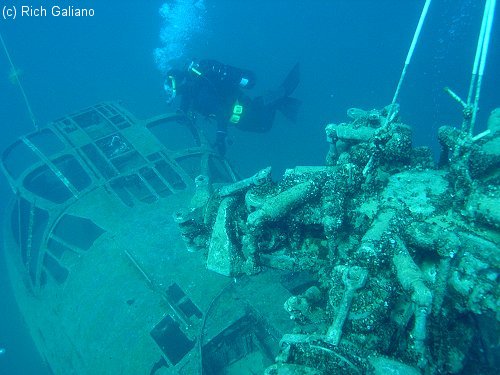
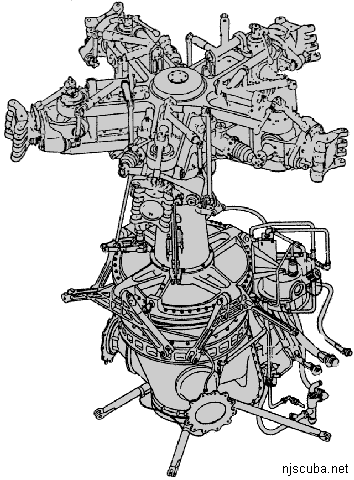
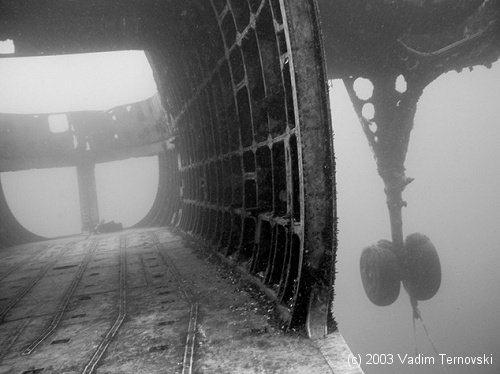
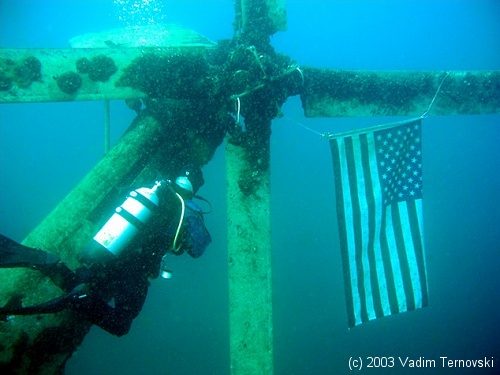
If you zoom in, the two white rafts are the floats for the helicopter. The big one is the main rotor hub, and the small one is the tail.
Helicopter jokes:
- Helicopters don't actually fly; they're just so ugly that the Earth repels them.
- A helicopter is a collection of spare parts flying in formation around an oil leak.



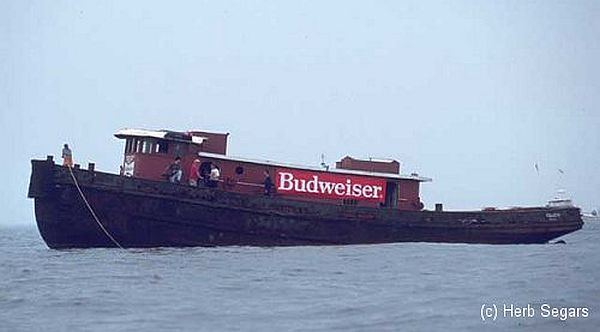
Questions or Inquiries?
Just want to say Hello? Sign the .